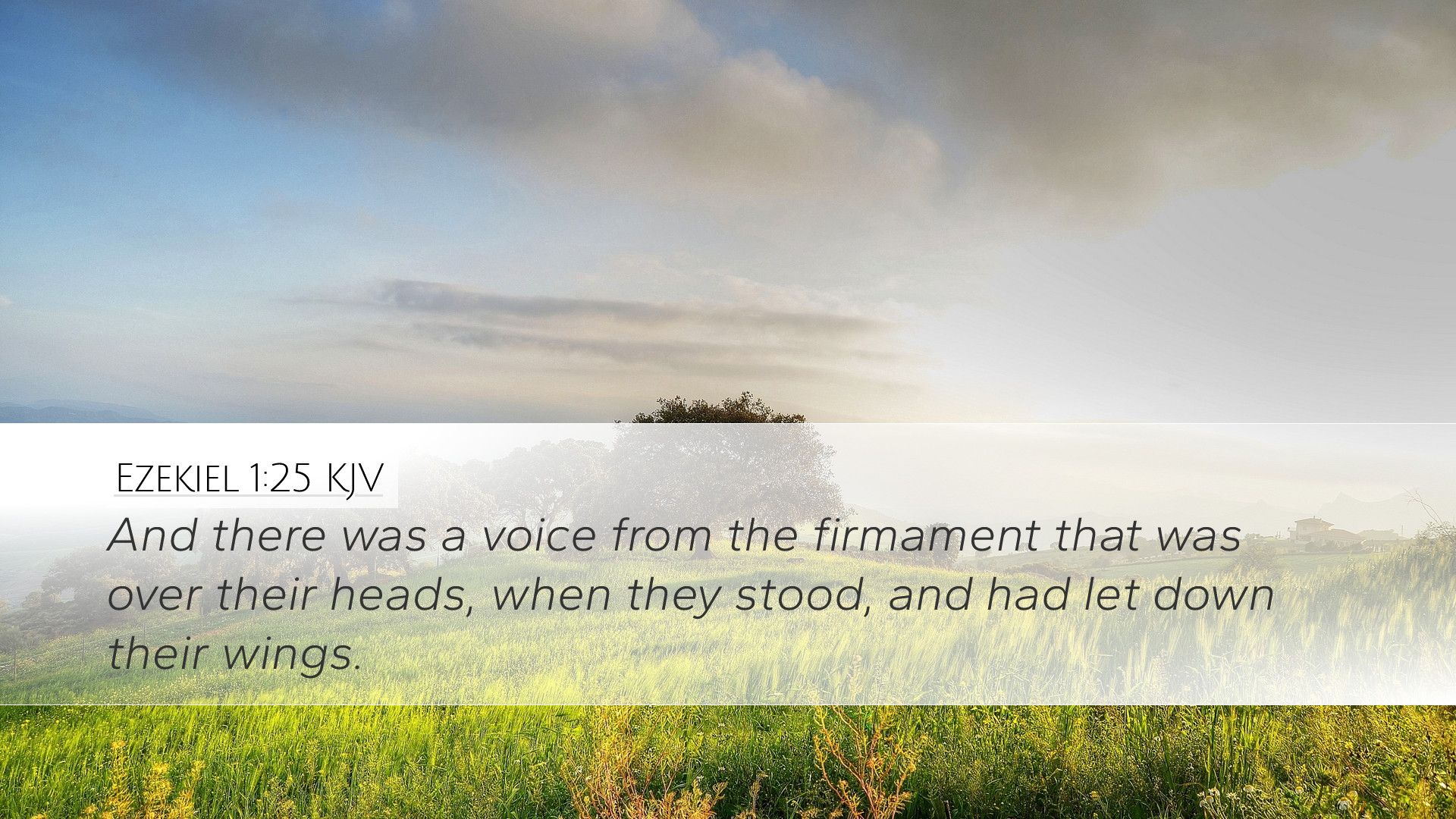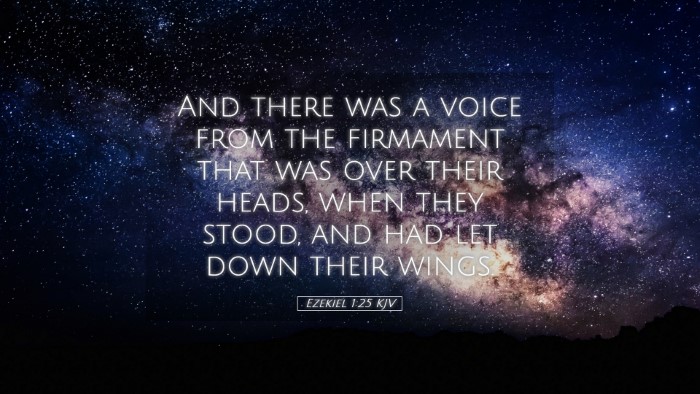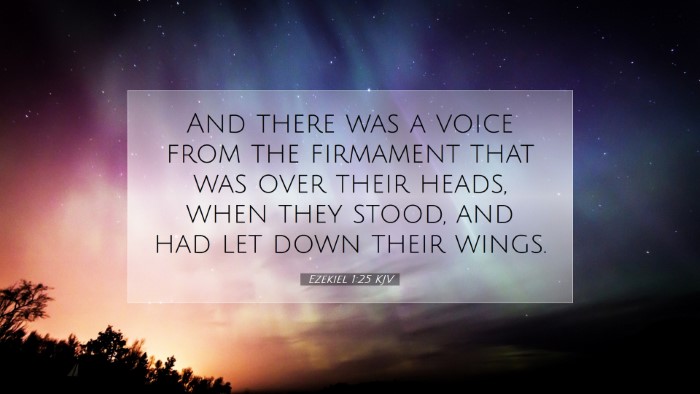Ezekiel 1:25 - Bible Commentary
Ezekiel 1:25 presents a fascinating aspect of Ezekiel's vision of God's glory, characterized by vivid imagery and rich theological implications. This verse is part of the larger narrative in which the prophet Ezekiel describes an extraordinary vision he received from the Lord, reflecting deep spiritual truths and divine realities.
Text of Ezekiel 1:25
"And there was a voice from the firmament that was over their heads, when they stood, and had let down their wings."
Contextual Overview
The Book of Ezekiel, written during the Babylonian exile, contains profound revelations regarding God's sovereignty, judgment, and restoration of Israel. This particular verse appears within the first chapter, which details Ezekiel’s initial encounter with God, the heavenly beings (often referred to as cherubim), and the divine chariot.
Theological Insights
In analyzing Ezekiel 1:25, several key theological themes emerge:
- Divine Communication: The "voice from the firmament" signifies God's intention to communicate with His prophet. It emphasizes the transcendence of God, who speaks from His sovereign realm, making Himself known to humanity.
- Worship and Reverence: The act of the cherubim "letting down their wings" implies submission and readiness to listen to God's voice. This posture of reverence is central to understanding the relationship between divine beings and the Almighty.
- The Nature of God's Presence: The firmament, a dome-like structure that separates the divine from the earthly, serves as a reminder of God's majesty and holiness. It illustrates the reality that God's presence is beyond the physical realm.
Commentary Analysis
Matthew Henry's Insights
Matthew Henry interprets this verse within the broader context of Ezekiel's vision. He notes that the voice signifies divine authority and direction. Henry emphasizes that the communication from the firmament is a reminder that God, in His sovereignty, governs not only the heavens but also the earth:
"God is not silent; He speaks from the heights of heaven to those on earth, showing the connection between divine will and prophetic action."
Albert Barnes' Commentary
Albert Barnes elaborates on the significance of the voice from the firmament being a direct communication from God. He explains:
"This act reveals the critical nature of prophecy; it is not based on human wisdom but is divinely initiated. The voice serves as a divine call and preparation for Ezekiel's forthcoming ministry."
Barnes further notes that the act of the cherubim letting down their wings suggests a moment of stillness, reflecting both reverence and a prepared heart for instruction.
Adam Clarke’s Perspective
Adam Clarke provides a detailed examination of the metaphorical language associated with the vision. He notes that:
"The firmament symbolizes the vastness of God's creative power, and His voice emerging from this realm underscores the majesty and authority of divine revelation to Ezekiel."
Clarke also touches on the implications of this divine encounter for Ezekiel, highlighting that such powerful imagery serves to prepare the prophet for the challenges he would face in delivering God's messages to a disobedient people.
Practical Applications
Understanding Ezekiel 1:25 is not just an academic exercise; it provides essential lessons for today’s pastors, students, and theologians:
- The Importance of Hearing God: In a world filled with noise, the necessity of listening for God’s voice remains crucial. The narrative encourages believers to discern God’s communication amid life's distractions.
- Posture of Reverence: The imagery of the wings being let down metaphorically calls for worshipers to approach God with humility and reverence, emphasizing the importance of readiness to respond.
- Call to Action: Just as Ezekiel was prepared to receive a message from God, believers today must also prepare themselves for divine calling, ready to act as agents of change in their communities.
Conclusion
Ezekiel 1:25 encapsulates profound truths about God's sovereignty and the nature of divine communication. The insights derived from public domain commentaries highlight the significance of this voice that emanates from the firmament, inviting believers to engage deeply with the ministry of hearing and responding to God's call. It serves as a reminder of the overarching themes of communication between the divine and humanity, challenging all who study this passage to consider their own posture before God.


